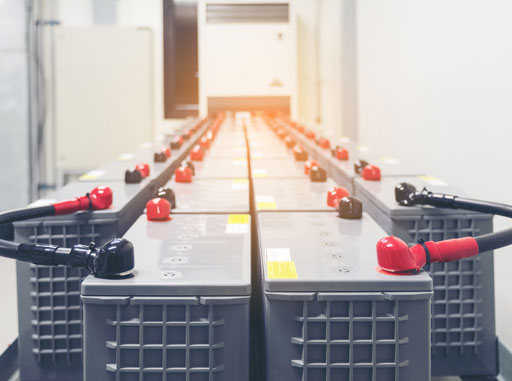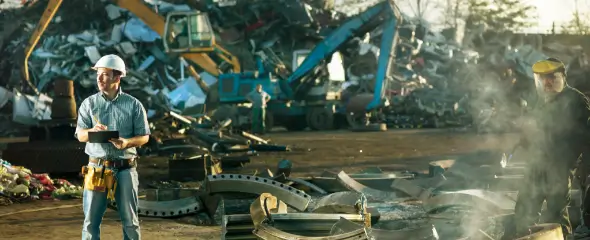
Can Spent Absolyte Batteries Be Recycled?
Absolyte batteries, which are typically manufactured by the GNB Company, are large cell, battery back-up systems that are in a rectangular format, in steel racks of several rows. Although most units are housed in a steel rack, it is not necessary for suppliers to remove the batteries from the racks prior to shipping or recycling them (e.g., steel racks found in data centers).
However, since H&C Metals also purchases ferrous scrap, we will buy the steel rack if removed from the battery cells prior to shipment to H&C. We would recommend keeping the cells in the rack to ensure they are as secure as possible during transport.
Absolyte batteries are used for various industrial applications, such as in telecommunications systems, railroad switchgear and signals, navigational aids, solar arrays & generally for uninterruptible power supply in locations exposed to extreme cold & heat.
Absolyte batteries are widely used as a rechargeable battery but their disadvantage, as opposed to a lead-acid battery, is that they are potentially hazardous due to their Cadmium content & the associated challenge of recycling them. They are a non-spillable battery but contain lead and Cadmium in their battery plates, which is toxic to both humans and the environment.
Are Absolyte Batteries Recyclable?
So, yes. Absolyte batteries can be recycled, but you should never attempt to carry out the recycling process on your own. These tasks should be best left to professional recyclers who know how to recycle them. Keeping rechargeable batteries out of the solid waste stream is critical. Additionally, one must remember to handle the batteries carefully before bringing them to a metal recycler. When transporting batteries, the terminals should always be facing up (vertical) to ensure they are not touching metal which could cause the battery to spark if it still holds a charge. This could cause a fire or electrocution.
How to Recycle Absolyte Batteries
It is important to note that there are limited “homes” to recycle absolyte batteries. Homes refer to companies that specialize in disassembling the batteries and recycling remaining components. This happens because there are limited uses of Cadmium. The element has high levels of toxicity and it is often costly to recycle. What about mills that accept auto batteries? Unfortunately, these companies will not accept absolyte batteries because they aren’t set up to process and handle Cadmium.
Here at H&C Metals, we accept absolyte batteries as a recyclable item because some of our key commercial customers have them available as scrap & rely on us to find a solution for recycling challenging end-of-life, post industrial waste. Our customers would otherwise not know what to do with them.
We also pride ourselves, as responsible stewards of the environment, to ensure that potentially hazardous materials do not end up in the solid waste stream. We do, however, accept absolyte batteries at no value. This is due to limited demand for Cadmium, the costs H&C Metals incurs to properly package them to meet DOT & EPA shipping standards, and as a hazardous material item usually supplied in less than full truckload quantities, absolyte batteries are expensive to transport.
What Sets Absolyte Batteries Apart?
The absolyte batteries come in both single cell and stable modules and conveniently have simple cell replacement capability which is less costly than replacing an entire battery bank. They are rechargeable & freezing tolerant – they have a wide band of temperature operation. Absolyte batteries retain more capacity in cold temperatures than traditional lead acid flooded batteries. This is possible since the electrons flow to their initial condition in the cell. This revives the battery charge, enabling it to keep discharging power.
In terms of high temperature conditions, the modular steel rack design provides excellent heat dissipation which ensures that the battery works at its optimum performance in high temperatures as well. These features provide added benefit to users that the battery will work in even the most demanding climate. However, the longer you use absolute batteries & the harder you push them, the weaker the recharging property becomes, thus eventually rendering them unfit for use. Factors such as age and location can contribute to the weakening. Recycling becomes necessary once they are too weak to recharge.
If you are looking for a reputable scrap dealer home that has experience properly identifying, accepting & knowing how to responsibly handle absolyte batteries, you can enjoy complete peace of mind knowing that H&C Metals is the right company to contact. We will send these scrap batteries to the next step in the recycling process: appropriate recyclers for the proper handling, dismantling & repurposing of materials


